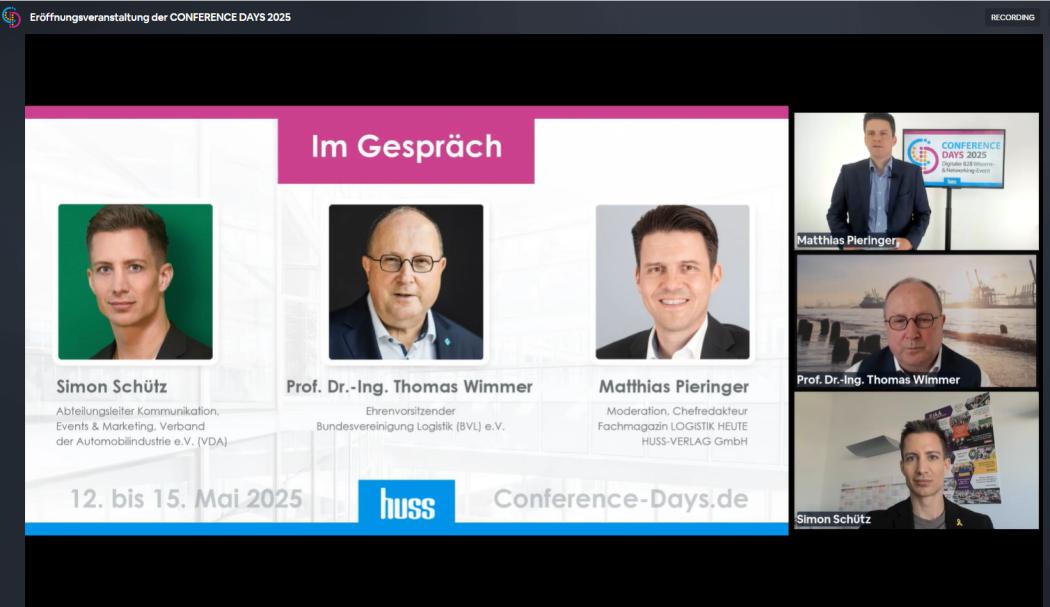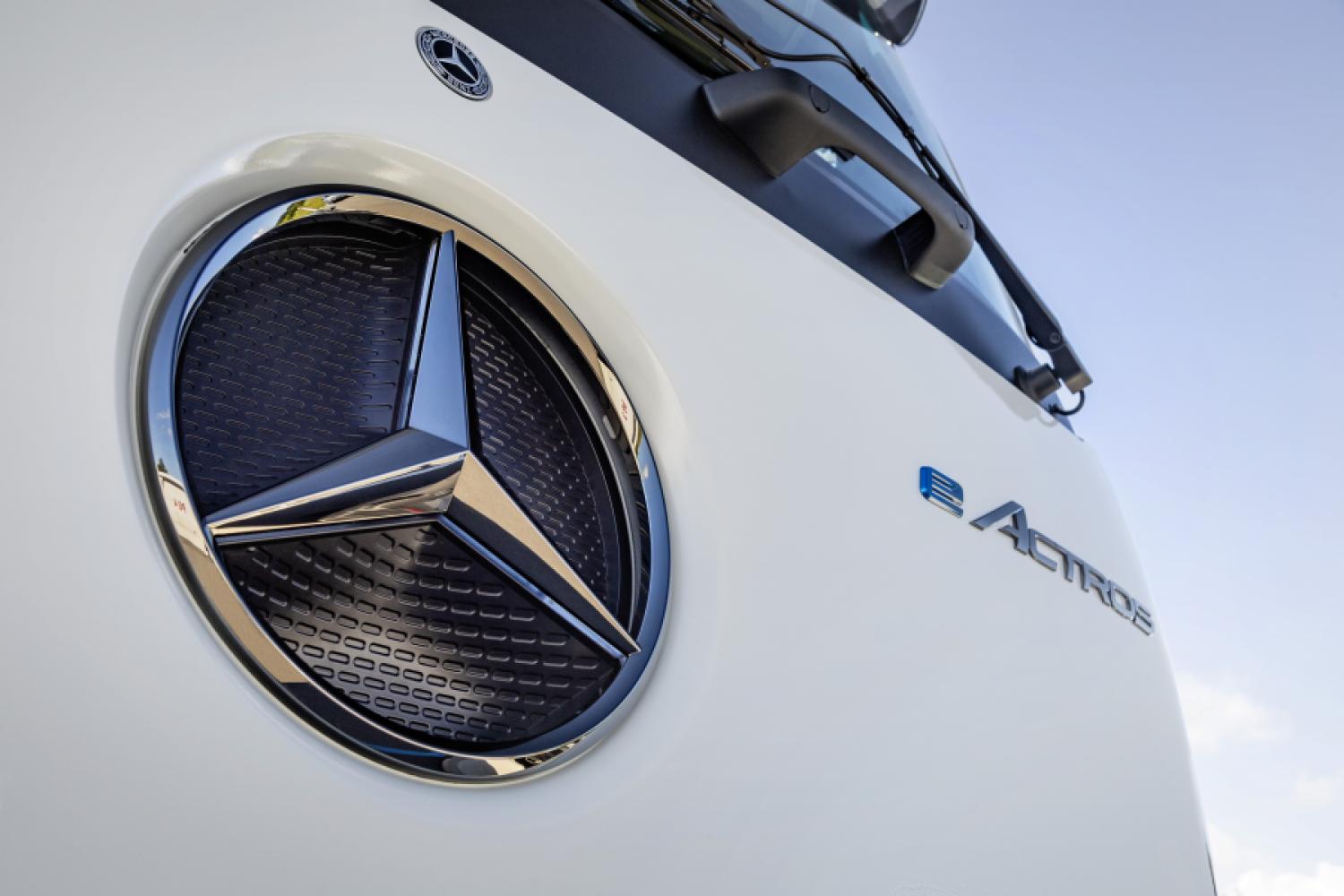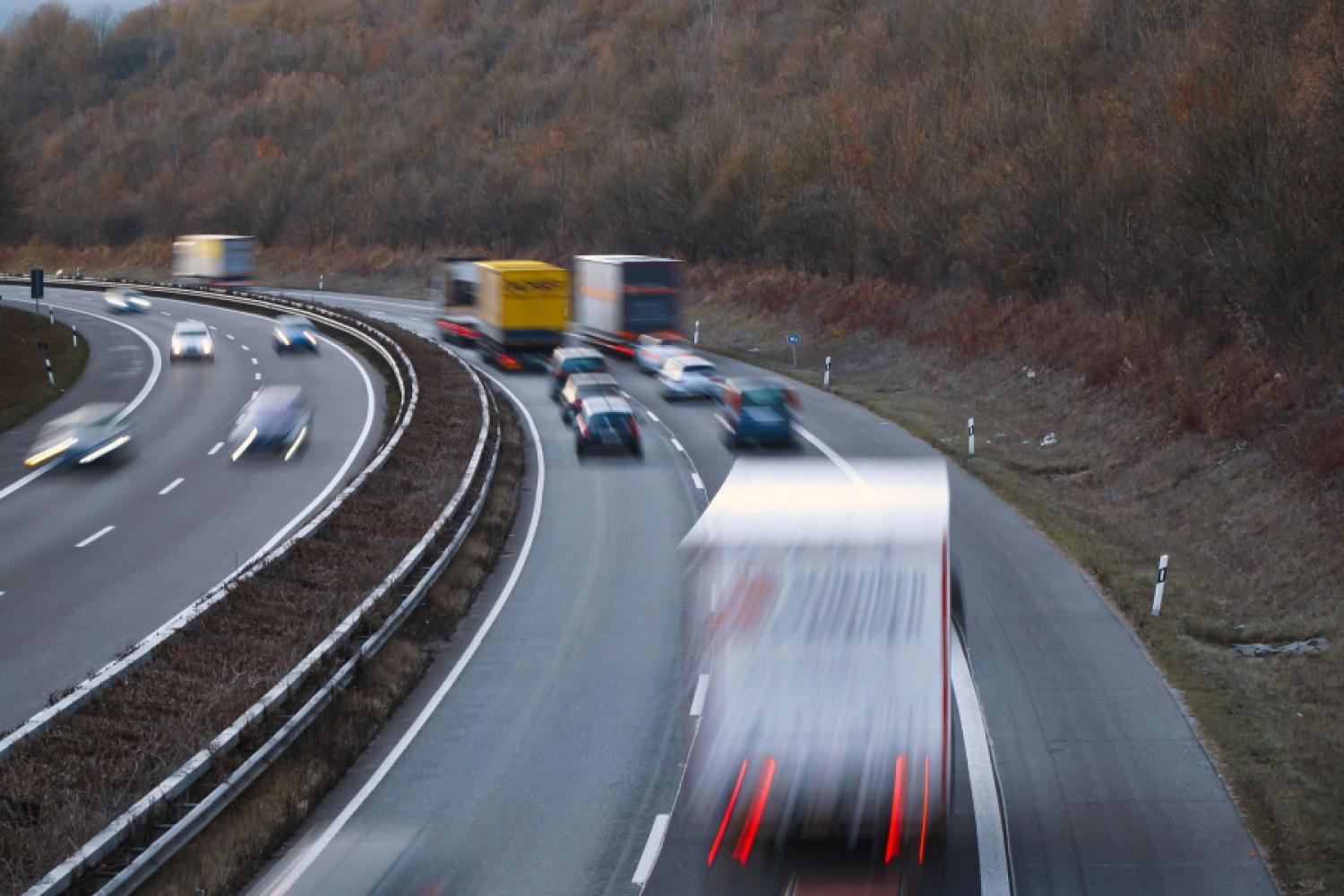The CONFERENCE DAYS 2025 commenced on May 12 at 9:00 AM. At the start of the four-day virtual conference format, which from May 12 to 15 includes around 30 sessions with 70 speakers on the three stages "Truck & Bus", "Logistics & Intralogistics", and "Automotive & Taxi", experts talked about the current economic and social challenges in Germany and Europe. The B2B event, for which interested parties can register at any time for free, was opened by Rainer Langhammer, Managing Director of Munich-based HUSS-VERLAG GmbH, which organizes the event series. In his opening speech, the publisher promised not only concentrated knowledge and networking opportunities for participants but also drew attention to current challenges such as the geopolitical and domestic political events of recent weeks, the
ongoing economic downturn, and global trade conflicts.
Under the moderation of LOGISTIK HEUTE editor-in-chief Matthias Pieringer, Prof. Dr. Thomas Wimmer, honorary chairman of the German Logistics Association (BVL), explained the current challenges impacting the logistics sector. In doing so, he quoted Prof. Dr. Marcel Fratzscher, president of the German Institute for Economic Research. The researcher currently sees three gigantic transformations occurring simultaneously: globalization is at risk, technological developments are happening very rapidly, and the associated social transformation is being marginalized in many places.
Nevertheless, Wimmer strongly urged more optimism in his keynote despite numerous negative headlines.
"Reality is much stronger than we often allow mentally. In Germany, there are suitable structures to turn things back to a positive direction. We have clean rule of law,
an economic structure that withstands stresses, and a strong civil society."
According to Wimmer, this is the basis for making groundbreaking changes. Logistics is not excluded from this.
"We must not bury our heads in the sand. On the contrary, we must move forward, also becoming more resilient. Because logistics is the backbone of commerce, politics, and society," Wimmer continued.
That the crisis-tested German automotive industry is better than its recent reputation was demonstrated by Simon Schütz, head of communication, events & marketing at the German Association of the Automotive Industry e.V., in a conversation with Matthias Pieringer.
"We saw at the recent Auto Shanghai that as German car manufacturers, we can certainly compete at the top in China. We have the know-how for that,
we stand for safety, and we can also drastically accelerate our development cycles," said the automotive expert.
However, Schütz simultaneously pointed out that the conditions in Germany must also be right for this.
"We have far too high bureaucratic hurdles in Europe. This not only troubles us but also Chinese car manufacturers who would like to enter the European market. This stifles growth efforts. We therefore demand not just a small reform of bureaucratic structures from the new government, but a significant overhaul."
Additionally, Schütz urged for more honesty in politics and society.
"We must acknowledge that it can sometimes be uncomfortable. For example, when it comes to working hours. We cannot expect to be logistics or export champions and then insist on a four-day






